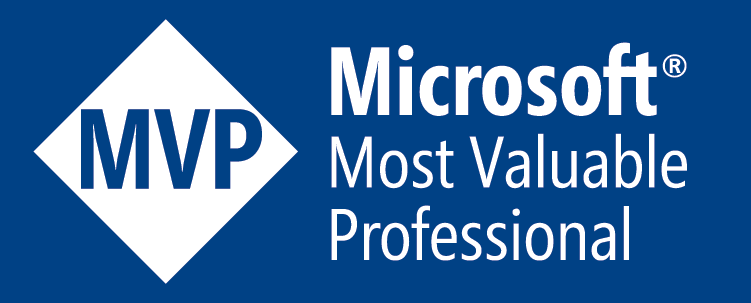How Microsoft 365 Agents SDK Simplifies Building Unified Agents for Any Channel

Overview
The way we build intelligent applications is evolving rapidly. With Microsoft’s Agents SDK for Microsoft 365, developers now have a unified framework to create AI-powered agents that can be deployed seamlessly across multiple channels - Microsoft 365 Copilot, Microsoft Teams, web applications, custom apps, and beyond. This approach reduces complexity, speeds up development, and ensures consistent user experiences across different platforms.
Why Agents Matter in Microsoft 365
For years, automation in Microsoft 365 has been driven by tools like Power Automate, Logic Apps, and custom apps. While powerful, these solutions often relied on rigid workflows. They were great for repetitive tasks but struggled to adapt to context or provide conversational, human-like support.
Agents change this.
Agents are context-aware, adaptive, and capable of reasoning.
They can:
- Interpret user intent in natural language.
- Access enterprise data securely.
- Execute actions on behalf of users.
- Learn from context to provide more relevant responses.
The Microsoft 365 Agents SDK brings these capabilities to developers in a standardized, extensible way.
What is the Microsoft 365 Agents SDK?
The Agents SDK is a set of developer tools and libraries designed to help you build, test, and deploy intelligent agents. These agents can integrate with Microsoft 365 services (like Outlook, SharePoint, Teams, and Loop) as well as external systems.
Key benefits include:
- Unified Development Model: Build once, deploy anywhere.
- Channel Flexibility: Deploy the same agent to Copilot, Teams, websites, or custom applications.
- Security & Compliance: Built-in alignment with Microsoft 365’s enterprise-grade security and governance.
- Extensibility: Use plugins, APIs, or external data sources to enrich agent capabilities.
How the SDK Simplifies Agent Development?
1. Single Codebase, Multiple Channels
Traditionally, building bots or AI assistants for different platforms required separate frameworks and deployments. With the Agents SDK:
- The same agent can run in Microsoft 365 Copilot, Teams chats, Outlook add-ins, or even in a web portal.
- Developers no longer need to rewrite logic for each channel - saving time and reducing maintenance.
2. Integration with Microsoft 365 Data
The SDK makes it simple to securely tap into Graph API and enterprise data:
- Access emails, calendar events, files, and Teams messages.
- Perform actions like scheduling meetings, fetching documents, or summarizing chats.
- Respect organizational compliance policies automatically.
3. Natural Language Understanding
Agents built with the SDK can understand user intent through AI models:
- They use prompt orchestration and context handling.
- Developers can extend them with custom plugins to connect to external APIs or business systems.
- Agents adapt responses based on user role, permissions, and current activity.
4. Unified Deployment and Governance
Admins can:
- Manage agents centrally via Microsoft 365 admin tools.
- Control access using Microsoft Entra ID.
- Ensure that data security, retention, and compliance policies apply automatically.
This governance-first approach reduces the risk of shadow IT and keeps AI adoption safe.
Where Can You Deploy These Agents?
- Microsoft 365 Copilot: Extend Copilot with domain-specific intelligence. Example: a sales agent that retrieves customer histories.
- Microsoft Teams: Add conversational agents into chat, meetings, or channels for collaboration.
- Websites & Portals: Deploy the same agent as a customer-facing assistant on a web page.
- Custom Applications: Integrate agents into industry-specific apps - like healthcare portals, financial dashboards, or learning platforms.
This channel-agnostic design ensures consistency of experience and maximum reuse of development effort.
Comparison: Before vs. After the SDK
| Aspect | Traditional Approach | With Microsoft 365 Agents SDK |
|---|---|---|
| Development | Separate code for each platform | One unified codebase |
| Integration | Custom APIs for each channel | Native Graph & SDK integration |
| Deployment | Platform-specific bots | Deploy once, run everywhere |
| Governance | Hard to enforce consistently | Centralized in Microsoft 365 |
| Scalability | Limited | Easily extensible with plugins |
Example Scenarios
- HR Agent
- Employees ask in Teams: “What’s my leave balance?”
- The same agent can also respond in Copilot when drafting an Outlook email about vacation planning.
- Sales Agent
- In Copilot: “Summarize opportunities for Q3.”
- On a web app: “Show customer interactions for account ABC Corp.”
- IT Support Agent
- Teams: Reset passwords, troubleshoot issues.
- Web portal: Self-service for employees working remotely.
Why This Matters for Organizations
The Microsoft 365 Agents SDK reduces barriers for developers and IT teams. Instead of stitching together multiple bots for different platforms, you get:
- Consistency – same intelligence everywhere.
- Faster time to value – one agent, many channels.
- Scalability – extendable with APIs, connectors, and plugins.
- Security & compliance – built-in enterprise trust.
For businesses, this translates to improved productivity, lower development costs, and greater adoption of AI-driven solutions.
Summary
The Microsoft 365 Agents SDK represents a major step forward in how we build intelligent, adaptive, and secure agents. By enabling a build once, deploy anywhere model, it simplifies the developer journey while delivering powerful outcomes for organizations.
Whether you want to enhance Copilot, empower Teams collaboration, or provide intelligent assistants in your own apps, the SDK gives you the tools to make it happen - all while keeping your data safe and your users productive.






Leave a comment